The OOPSLE workshop is a discussion-oriented and collaborative forum for formulating and addressing with open, unsolved and unsolvable problems in software language engineering. It can help you define your problems or verify them on the early stage with the community.
“Software languages” comprise all kinds of artificial languages used in software development: for programming, markup, pretty-printing, modelling, data description, formal specification, evolution, etc. Software language engineering is a relatively new research domain of systematic, disciplined and measurable approaches of development, evolution and maintenance of such languages.
The OOPSLE workshop has successfully ran in 2013, 2014, 2015 and 2016. The 2020 edition format is different for inevitable reasons, but we promise to keep the spirit of the original editions with the emphasis on discussions and a versatile cast of participants.
Post-proceedings (CEUR, bibTeX)
Programme (22 June 2020)
- 9:00 – 9:30 Opening and welcome of OOPSLE’20; introduction and planning (PDF)
- 9:30 – 11:00 Keynote and discussion:
- 11:00 – 11:30 Remote tea/coffee break
- 11:30 – 13:00
The SLEBoK session:
- Alfonso Pierantonio: “The Model-Based Software Engineering Body of Knowledge (MBEBoK)” (cf.)
- Vadim Zaytsev: “SLEBoK Summer School: Exploring Alternatives” (cf.)
- 13:00 – 14:00 Remote lunch break
- 14:00 – 15:30
Discussion session:
(PDF)
- Federico Tomassetti: “Business and Organisational Problems of SLE/DSLs”
- 15:30 – 16:00 Remote tea/coffee break
- 16:00 – 18:15
Presentation session
- Mikhail Barash: “Towards a classification of DSLs” (slideshare) (PDF)
- Eric Van Wyk & Benoît Combemale: “Expression Problem in SLE” (cf.)
- Eleni Constantinou: “Bug Handling in IDE Releases” (cf.)
- Bernd Fischer: “Generating Well-Formed Programs for Fuzzing and Testing” (cf.)
- Jurriaan Hage: “The Usability of Static Type Systems” (cf.) (PDF)
- 18:20: Freeform discussion, conclusion and a remote social event
Notes
- The Zoom Room was kept open for the entire day starting from 9:00 CEST/UTC+2 to eliminate the need to hop from one room to another. Just keep it open, and things will keep unfolding.
- The exact schedule might shift according to participants’ desires and availability. Tune in a bit in advance to make sure you do not miss anything. Better yet, just stay with us the entire day!
- During the breaks (at 11:00, 13:00, 15:30 and 17:30), we switched to an informal mode, emulating coffee break conversations: discussions may continue, but some participants will excuse themselves, others will discuss personal or unrelated matters, etc.
- Zoom supports a common chat as well as personally targeted chat messages. Make good use of them.
- If you are using a company account or a nickname, please introduce yourself to the host in a private message if you want to be kept in the loop later (e.g., for the post-proceedings call for papers).
- The day will be recorded locally on the co-chair’s laptop, with a possibility of condensing it later to a very short summary video. We cannot guarantee you will appear in the summary video, but if you do not wish yourself there, just say so and we will oblige.
- If you have already arranged for a talk, aim for a shorter message and an open discussion, do not overprep. If you want to arrange a talk or a pitch during the event, just send an email or a private chat message.
- Have fun and enjoy the workshop! Get in touch with the chairs if you have any questions or remarks.
Workshop Co-Chairs
- Anya Helene Bagge, University of Bergen, Norway
- Vadim Zaytsev, Raincode Labs, Belgium
